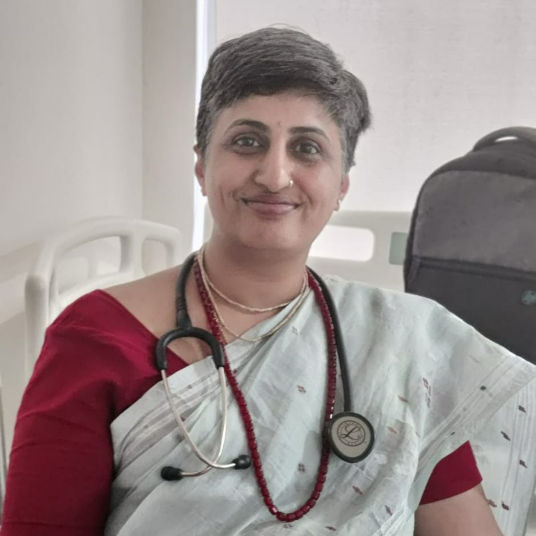How To Reduce Pulse Rate?
Learn effective methods to reduce your pulse rate naturally. Explore lifestyle changes, relaxation techniques, and tips for managing stress to support heart health.

Written by
Last updated on 13th Jan, 2026
A high pulse rate, also known as tachycardia, can be concerning, especially if it happens frequently. Your pulse rate is the number of times your heart beats per minute (BPM). A normal resting heart rate for adults ranges between 60 to 100 BPM. If your pulse rate is consistently above 100 BPM, it may indicate an underlying issue that needs attention. The good news is that there are several simple and effective ways to lower your pulse rate naturally. In this article, we’ll discuss why a high pulse rate occurs, how it affects your health, and what you can do to bring it down safely.
Why Does My Pulse Rate Increase?
Several factors can cause your heart rate to rise, including:
1. Stress & Anxiety: Emotional stress triggers the release of adrenaline, increasing heart rate.
2. Physical Activity: Exercise naturally raises your pulse, but it should return to normal afterward.
3. Dehydration: Lack of fluids makes your heart work harder.
4. Caffeine & Stimulants: Coffee, energy drinks, and nicotine can spike heart rate.
5. Fever or Illness: Infections and high body temperature increase heart rate.
6. Medications: Some drugs (like decongestants) can cause a temporary rise in pulse.
7. Underlying Conditions: Thyroid disorders, anaemia, or heart disease may contribute.
If your high pulse rate persists without an obvious reason, consult a doctor to rule out serious conditions.
How Can I Lower My Pulse Rate Naturally?
Here are some effective ways to reduce your heart rate safely:
1. Practice Deep Breathing
Slow, deep breathing activates the vagus nerve, which helps calm your heart rate. Try this simple exercise:
Inhale deeply through your nose for 4 seconds.
Hold your breath for 4 seconds.
Exhale slowly through your mouth for 6 seconds. Repeat 5-10 times whenever you feel your heart racing.
2. Stay Hydrated
Dehydration forces your heart to pump harder. Drink enough water throughout the day, especially if you sweat a lot or consume caffeine.
3. Reduce Caffeine & Alcohol
Both caffeine and alcohol can increase heart rate. Limit coffee, energy drinks, and alcohol, especially if you notice palpitations.
4. Get Regular Exercise
Regular physical activity strengthens your heart, allowing it to pump blood more efficiently. Try:
Brisk walking (30 minutes daily)
Yoga or Tai Chi (great for relaxation)
Swimming or cycling (gentle on joints)
Note: If you have a heart condition, consult a doctor before starting a new exercise routine.
5. Manage Stress & Anxiety
Chronic stress keeps your heart rate elevated. Try:
Meditation or mindfulness (apps like Headspace can help)
Listening to calming music
Progressive muscle relaxation (tensing and relaxing muscles one by one)
6. Eat a Heart-Healthy Diet
Certain foods help regulate heart rate:
Bananas & Leafy Greens (rich in potassium & magnesium)
Fatty Fish (omega-3s support heart health)
Dark Chocolate (70%+ cocoa), in moderation, may help lower stress.
Avoid excessive salt, processed foods, and sugary snacks.
7. Get Enough Sleep
Poor sleep increases stress hormones, raising heart rate. Aim for 7-9 hours of quality sleep per night.
8. Try the Valsalva Maneuver
This technique can help slow a racing heart:
Pinch your nose, close your mouth, and gently try to exhale (like blowing up a balloon).
Hold for 10-15 seconds, then release.
Caution: Avoid this if you have heart disease unless advised by a doctor.
When Should I See a Doctor?
While occasional high pulse rates are normal (especially during stress or exercise), consult a doctor if you experience:
Resting heart rate consistently above 100 BPM
Dizziness, chest pain, or fainting
Irregular heartbeat (palpitations)
Shortness of breath without exertion
These could indicate an underlying condition like arrhythmia, thyroid issues, or heart disease.
Conclusion
In conclusion, lowering your pulse rate is an essential aspect of maintaining good cardiovascular health. By adopting habits such as regular exercise, managing stress through relaxation techniques, and staying hydrated, you can naturally support your heart and reduce your pulse rate. It’s important to remember that lifestyle changes play a significant role, but if you experience irregularities or persistent issues, consulting a healthcare professional is crucial for your well-being. Small, consistent steps today can lead to a healthier, more stable pulse rate in the long run.
Consult Top General Physician
Consult Top General Physician

Dr. Siri Nallapu
General Practitioner
5 Years • MBBS
Hyderabad
Apollo 24|7 Clinic, Hyderabad

Dr. Rajib Ghose
General Physician/ Internal Medicine Specialist
25 Years • MBBS
East Midnapore
VIVEKANANDA SEBA SADAN, East Midnapore

Dr. Anand Misra
General Physician/ Internal Medicine Specialist
14 Years • MBBS, DNB
Mumbai
Apollo Hospitals CBD Belapur, Mumbai

Dr. Ashmitha Padma
General Physician/ Internal Medicine Specialist
5 Years • MBBS, MD Internal Medicine
Bengaluru
Apollo Hospitals Jayanagar, Bengaluru

Dr. Nirmal Mathew Alex
General Physician/ Internal Medicine Specialist
17 Years • MBBS, MD(general medicine)
Angamaly
Apollo Hospitals Karukutty, Angamaly
(50+ Patients)